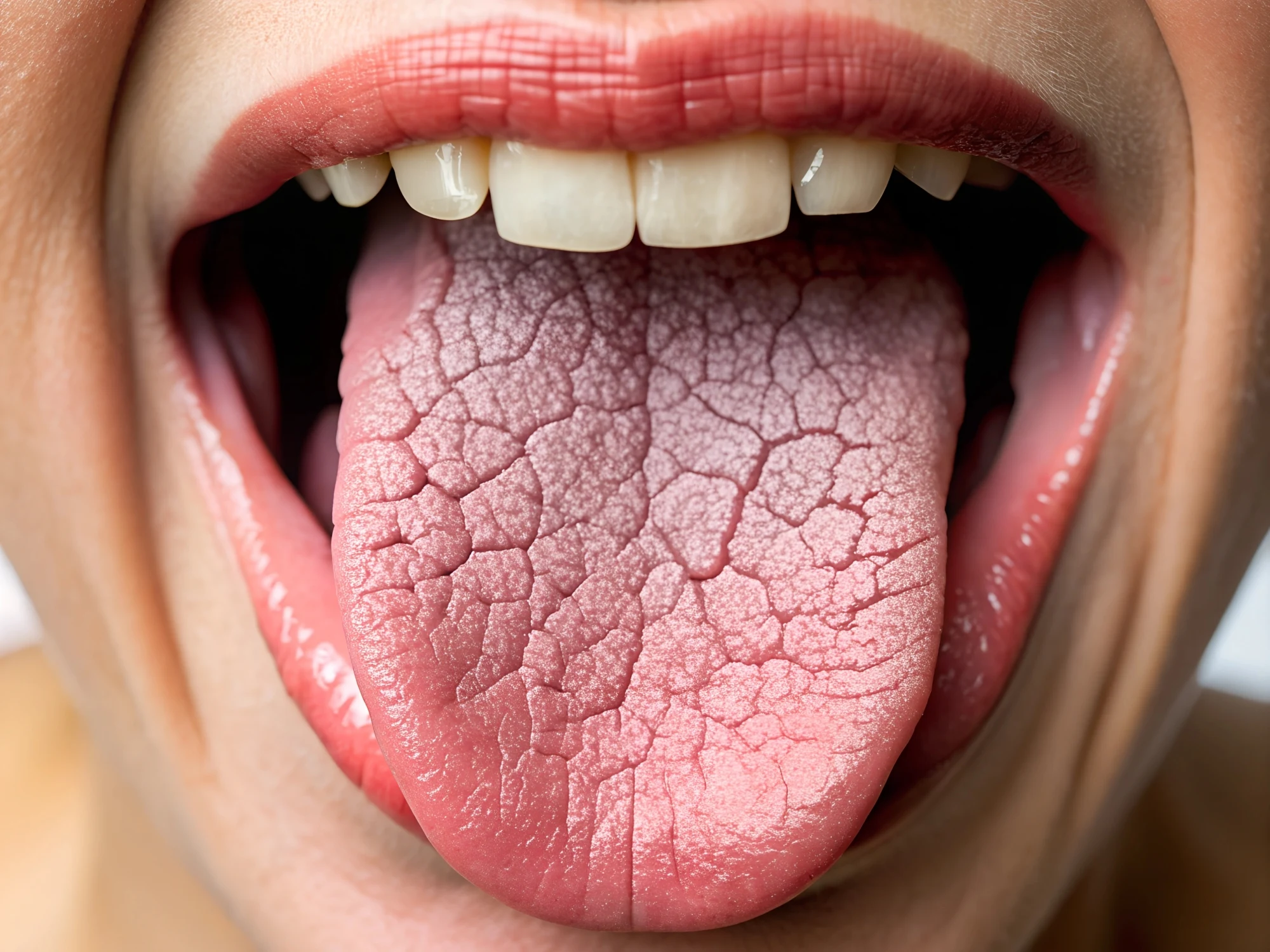
Dry Mouth (Xerostomia): Causes, Symptoms, and Treatments

This blog has been reviewed and approved by Dr. Monika Negi, a qualified Oral and Maxillofacial Pathologist with 5+ years of experience.
Table of Contents
Key Takeaways
- Dry mouth, or xerostomia, happens when your body doesn’t produce enough saliva—leaving your mouth dry and uncomfortable—and your teeth and gums more vulnerable to oral health problems.
- Dry mouth can be caused by stress, anxiety, medications, aging, snoring, mouth breathing, certain health conditions, tobacco, alcohol, drugs, or nerve damage.
- Symptoms of dry mouth include a prolonged dry, sticky feeling in your mouth along with difficulty chewing and swallowing, discomfort when speaking, dry lips and throat, and mouth sores that don’t go away.
- To temporarily relieve dry mouth symptoms, use a special oral rinse, chew sugarless gum, suck on ice cubes, avoid smoking and chewing tobacco, and limit alcohol. Talk to your doctor about treating the underlying condition.